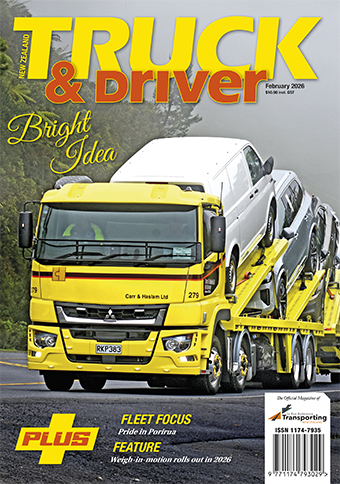Ia Ara Aotearoa Transporting New Zealand News


Unions push through Fair Pay Agreements
The Government says Fair Pay Agreements (FPAs) will be on the legislative table this year, and will be law by 2022.
Fair Pay Agreements are basically “national awards” rebranded, says Road Transport Forum chief executive Nick Leggett – and the Forum is “strongly opposed to any form of centralised wage bargaining, such as FPAs, or any other forms of labour market regulation that pre-sets the remuneration and work conditions of professional drivers.
“We support the need for road freight businesses to have flexibility when it comes to labour costs in a changing marketplace with ever-changing technologies.”
The Australian Fair Work Act, on which these FPAs are based, gives significant political power to unions, which flows through to the Australian federal and state Labor parties.
“The same idea is very much behind our Government’s intentions to push forward with what results in a turning back of the clock on labour relations in this country,” says Leggett.
“Unions are a lot less interested in the individual worker these days than they are in raising funds to back the Labour Party.
...The Government says Fair Pay Agreements (FPAs) will be on the legislative table this year, and will be law by 2022.
Fair Pay Agreements are basically “national awards” rebranded, says Road Transport Forum chief executive Nick Leggett – and the Forum is “strongly opposed to any form of centralised wage bargaining, such as FPAs, or any other forms of labour market regulation that pre-sets the remuneration and work conditions of professional drivers.
“We support the need for road freight businesses to have flexibility when it comes to labour costs in a changing marketplace with ever-changing technologies.”
The Australian Fair Work Act, on which these FPAs are based, gives significant political power to unions, which flows through to the Australian federal and state Labor parties.
“The same idea is very much behind our Government’s intentions to push forward with what results in a turning back of the clock on labour relations in this country,” says Leggett.
“Unions are a lot less interested in the individual worker these days than they are in raising funds to back the Labour Party.
“It’s clear what this move is about – politics, and money for politics. While not wanting to be critical of that in itself – it takes money to pay for campaigns and each side of politics takes money from respective support bases – there should be transparency and public debate about these things.”
New Zealand’s minimum wage is among the highest in the OECD, he says: “Generally, workers have good, safe working conditions, all covered by existing laws. Compulsory unionism ended in NZ in 1991 and since then, outside of a few key industries, unions have struggled to stay relevant.
“The trucking industry is not heavily unionised, with good reason: Drivers want choices about how and when they work. Trucking varies tremendously between different companies, regions, freight types and vehicles used.
“National, or even regional, awards are not going to be flexible enough to allow for that variation, or to meet driver needs. With driver shortages, good drivers have flexibility and should see continued increases in their pay as a result.
“A road transport industry FPA will not alleviate our worker shortage. Quite the opposite will occur,” says Leggett.
“It will make the road freight industry less attractive to those who want flexibility in their working lives.”
Former Act Party leader (and previously a Labour Government Cabinet minister) Richard Prebble published a scathing opinion piece recently, saying the FPAs are compulsory unionism by stealth. He says the changes will do enormous economic damage and that no one who experienced compulsory arbitration would advocate for its return.
The Labour Party has the numbers to push this law through Parliament, and will likely ignore submissions that oppose any aspects of it. But the RTF backs BusinessNZ in suggesting that a voluntary approach to achieving the desired goals – minimum standards for all employees and employers in an industry or occupation – would be at least more consistent with NZ’s obligations under international labour law, as well as being far more effective.
Interestingly, in Australia the relationship between unions and the Labor Party seems to be crumbling, with a dispute over donations and affiliation fees threatening the vice-like grip that unions have over the party. However, with unions being the major contributor to Australian Labor’s political campaigns, perhaps our own Labour Party needs to be careful about just how beholden to them it becomes.



 + EQUIPMENT GUIDE - FREE
+ EQUIPMENT GUIDE - FREE
